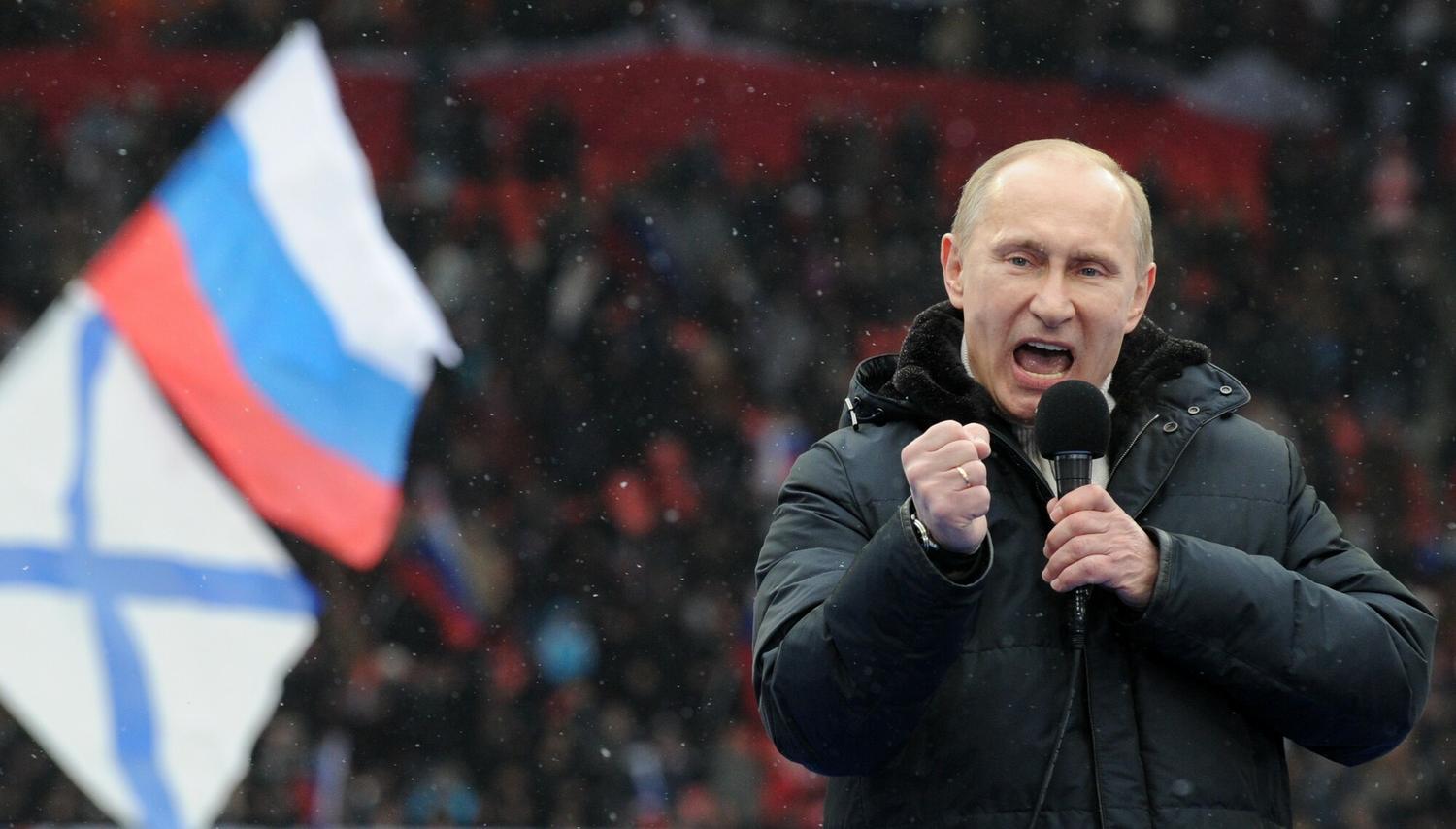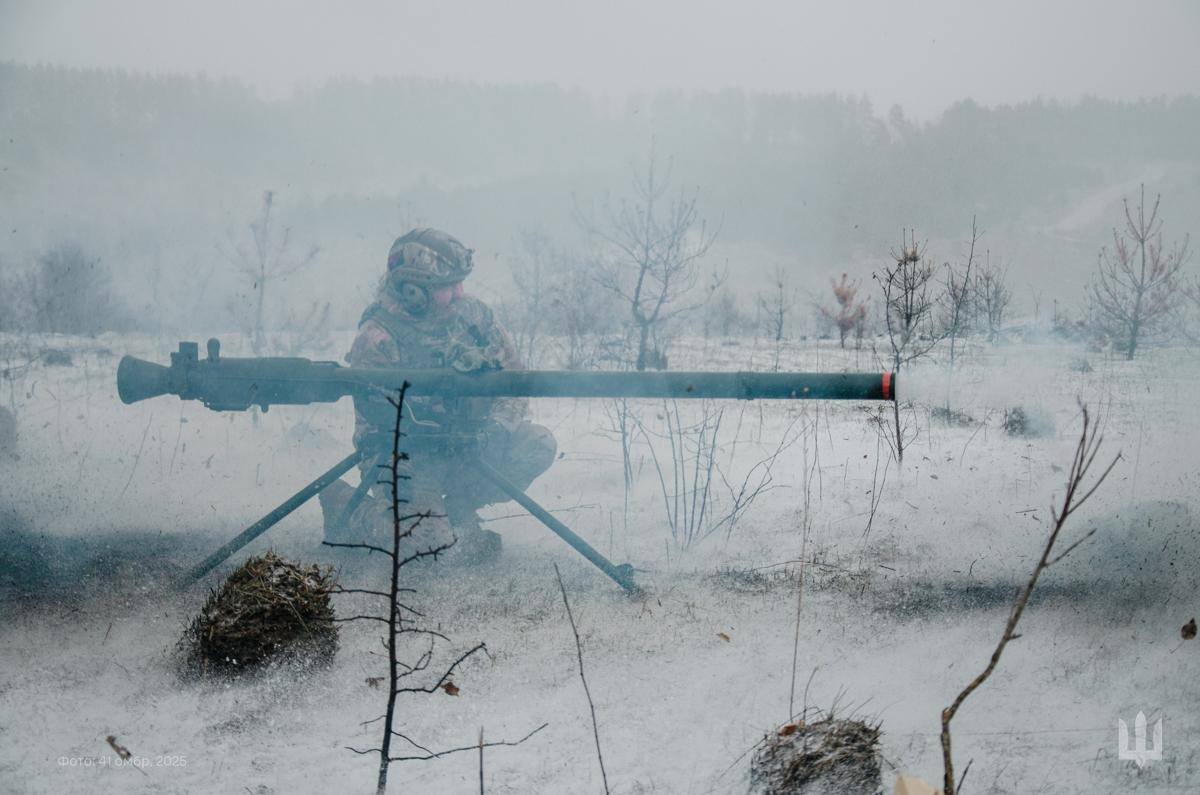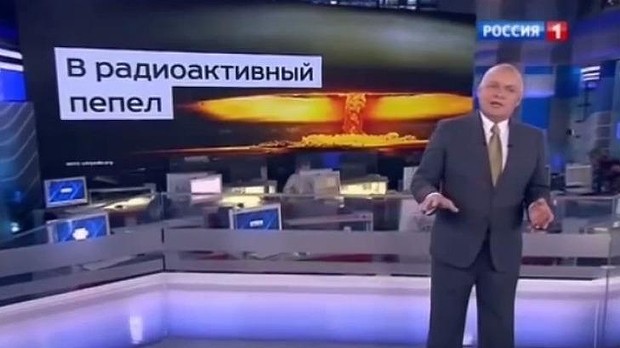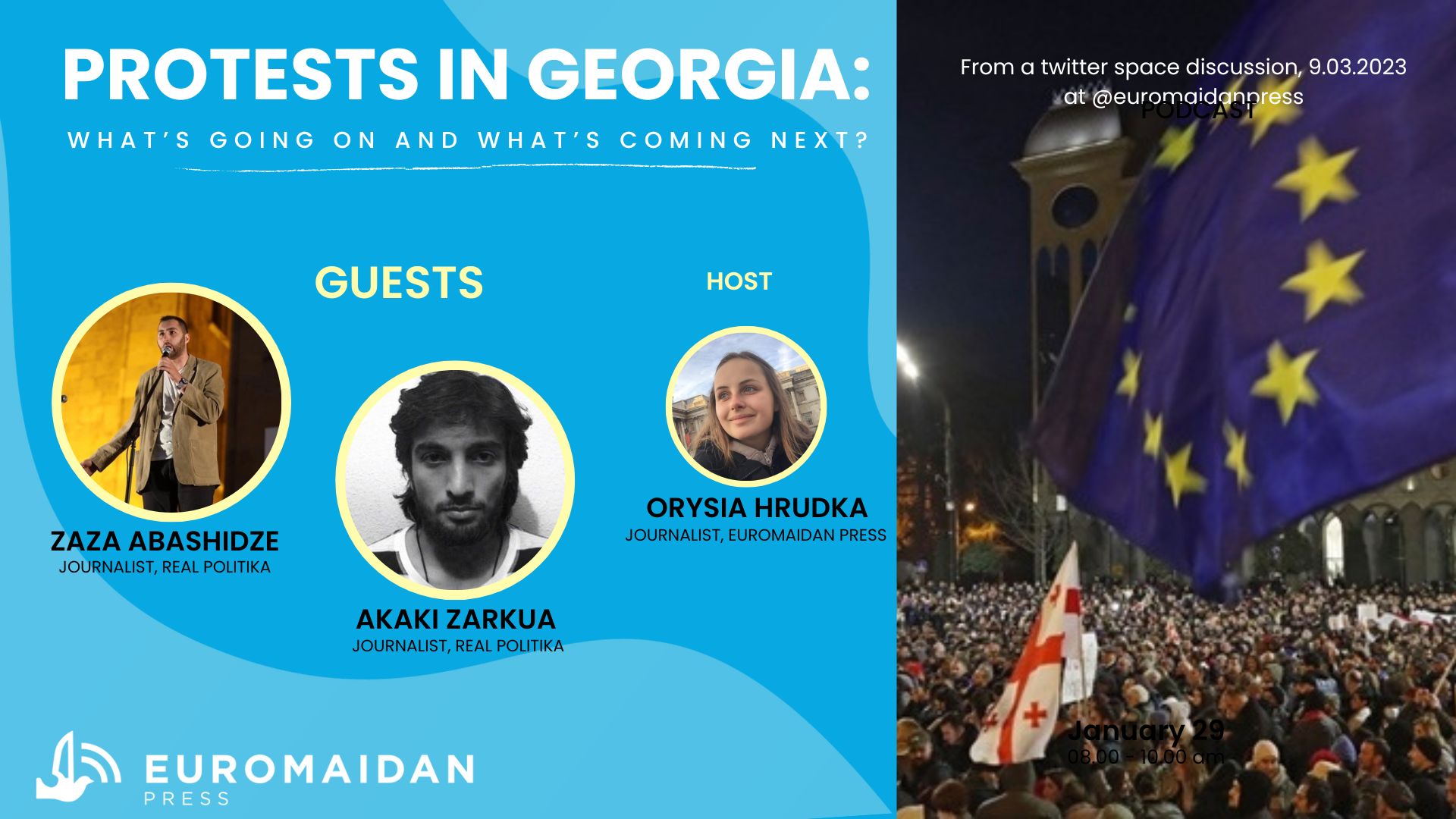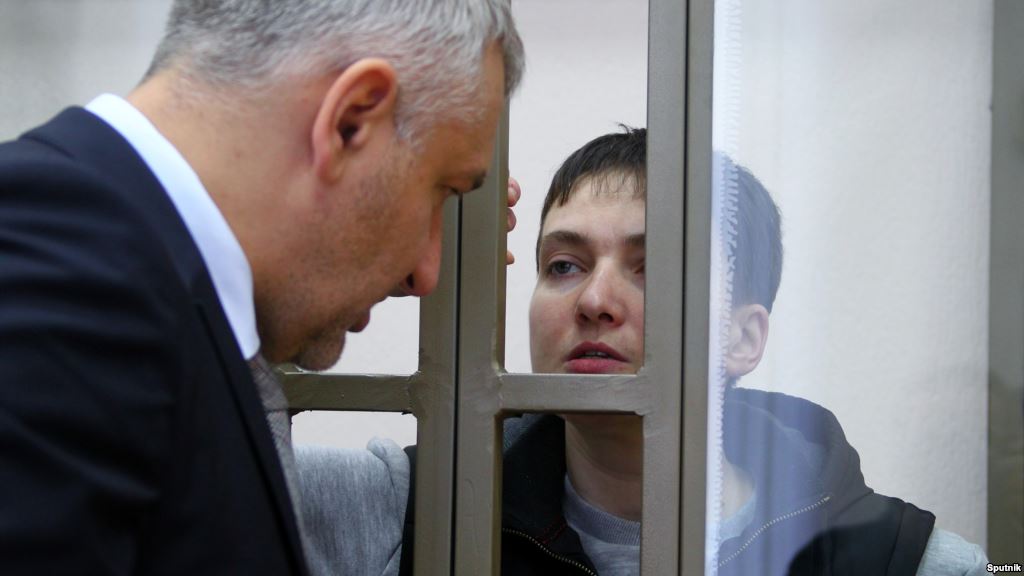"We're fighting about where the new Iron Curtain will be," warns Anders Puck Nielsen during a visit to Kyiv. His voice carries the measured tone of someone who has spent decades assessing military threats, but the message is unambiguous: Europe's security architecture is being redrawn through Ukraine's blood.
For Nielsen – a Danish naval officer, military analyst, and influential YouTube commentator with nearly a quarter million subscribers – Ukraine's position in this new geography is non-negotiable. "Europe needs Ukraine on its side of that line," he insists.
In this exclusive interview with Euromaidan Press, Nielsen demolishes the simplistic view of Russia's war as merely a territorial dispute. What's unfolding, he argues, is nothing less than a fundamental struggle that will determine Europe's security landscape for decades to come. (Read the full transcript here).
Why Trump gets Ukraine wrong
"Trump sees this only as a territorial dispute, which is why he gets it wrong," Nielsen explains, leaning forward in his chair. "He thinks there's a quick deal to be had, that sides can compromise. But the core views are incompatible – Ukraine can't be both independent and under Russian control."
This fundamental misunderstanding permeates American thinking about the war, according to Nielsen. The notion that Ukraine could simply cede some eastern territories and achieve peace fundamentally misreads Russia's strategic objectives.
"Russia wants to turn Ukraine into another Belarus," he says. "If the war ends with Russia getting only the territory they currently occupy, but the rest of Ukraine becomes a sovereign, Western-leaning, economically rich democracy, then from a Russian point of view, they lost the war."
The Danish analyst's frustration with this mischaracterization is palpable. "I get tired of all this talk about Ukraine giving up territory to end the war. It's a simplistic view. What's happening in eastern Ukraine is Russia putting pressure on the rest of Ukraine and on the Western alliance."
The illusion of an easy peace
When asked about the prospects for a Trump-brokered ceasefire, Nielsen's assessment is blunt: "Someone would probably break the ceasefire. The only player that really wants peace right now is the United States. The sides actually fighting the war – Russia and Ukraine – don't seem to believe we're close to an end to the fighting."
For the military analyst, the fundamental conditions for ending the conflict simply don't exist. "As a military analyst, I don't see the conditions for war termination being met anytime soon. Ukraine and Russia's objectives are not compatible in any way."
He explains that wars typically end when one side faces imminent collapse – a condition neither Ukraine nor Russia currently meets. "One side has to be really close to losing – facing collapse within months if they don't make a deal."
The current diplomatic maneuvering, Nielsen suggests, is less about genuine peace prospects and more about influence: "Both Russia and Ukraine are trying to influence American support. Russia wants Trump to blame Ukraine for the war continuing, so Trump will punish Ukraine by cutting aid and stopping intelligence sharing. Ukraine wants Trump to blame Russia. It's a blame game."
The Kursk gambit: Strategic brilliance or tactical retreat?
Nielsen offers a contrarian take on Ukraine's withdrawal from parts of Russia's Kursk Oblast – seeing strategic value where others see failure.
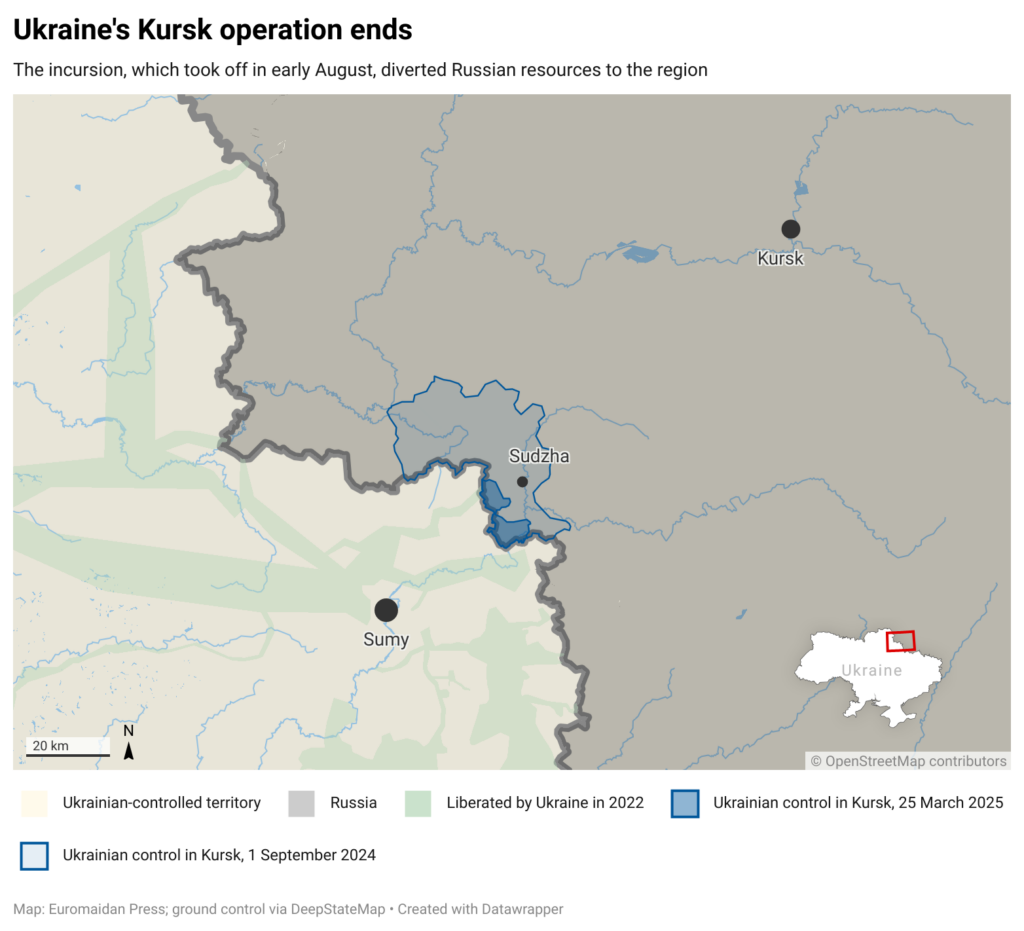
"Russia throws everything at Ukraine that they have. It's better for Ukraine when this happens on Russian territory than in Ukraine," he explains. "The Kursk incursion dramatically reduced pressure on other frontline sectors by forcing Russia to redirect munitions and personnel."
Far from viewing the operation as a failure, Nielsen sees it as having achieved important objectives: "This strategy worked, but it's losing significance now that we're a couple of months into Trump's presidency."
Ukraine's presence in Kursk complicated Russian diplomatic efforts, making it harder for Moscow to propose freezing the front line when Trump took office. While Ukrainian forces have withdrawn from Sudzha, Nielsen notes they haven't abandoned all their positions in Kursk Oblast.
America's retreat and Europe's awakening
"Since Trump took office, it's become clear the United States is not a trustworthy partner anymore – not just for Ukraine but for all European countries," Nielsen states matter-of-factly. This stark assessment reflects a profound shift in European security thinking.
The Danish analyst sees a silver lining in this painful realization: "For Ukraine, it's good that this realization has dawned on other European countries too. Ukraine isn't alone in feeling abandoned – all European countries are looking at what they thought was their security guarantee and seeing it's not worth much."
"I'm from Denmark – we even have the American president saying he wants to annex part of our territory. There's no way we can base our security on that."
This new reality is forcing a fundamental reconsideration of European security architecture. "The future European security order will require European countries, including Ukraine, to balance Russia on their own," Nielsen asserts.
He sees encouraging signs in the responses of key European powers: "Poland is taking the lead. The new German government seems willing to make these steps. French President Macron says many of the right things and is also taking steps to increase French defense spending."
The nuclear question lurking beneath everything
When pressed on what true peace would look like, Nielsen's analysis takes a more somber turn. "In military theory, we don't actually talk about peace. We talk about different degrees of competition, and right now there's intense armed competition."
The uncomfortable reality, according to Nielsen, is that effective deterrence may require nuclear capabilities. "Ukraine needs a nuclear umbrella, but when Americans refuse to provide this, who will? The French arsenal isn't nearly enough."
This raises profound questions for European security broadly: "Ukraine is in the same boat as the rest of Europe. We all look at this and say, where is actually our nuclear umbrella right now?"
Trending Now
Nielsen sees the non-proliferation regime itself at risk: "American withdrawal pulls the rug from under the entire non-proliferation regime. The principle was that democratic countries don't need nuclear weapons because America has them. Now, democratic nations see this isn't working anymore."

Hi! My name is Alya Shandra, I'm the author of this piece. I believe in the power of data and analysis, and that's why we try to give you the best of it at Euromaidan Press.
Become our patron to help us bring you the best insights from Ukrainian and foreign analysts so we can cut through the noise together.
What Ukrainian victory might look like
Despite the daunting challenges, Nielsen remains "bullish on Ukraine's chances" – though his timeline has shifted. "Before Trump took office and showed his willingness to side with the Russian interpretation of events, I would have said 2025 could be when momentum shifts in Ukraine's favor."
"It's a mistake to assume what's happening at the frontline now represents a frozen conflict. It's really an intense war of attrition that's still going on."
He believes Russia's war economy is fundamentally unsustainable: "I believe 2024 was peak Russian strength. Their economy is struggling, and they're running out of resources."
For victory to materialize, Nielsen says the trend on the frontline must reverse. "It doesn't have to go fast, but at some point, when Putin looks at how much territory was gained in a month, he needs to see a number with a minus in front."
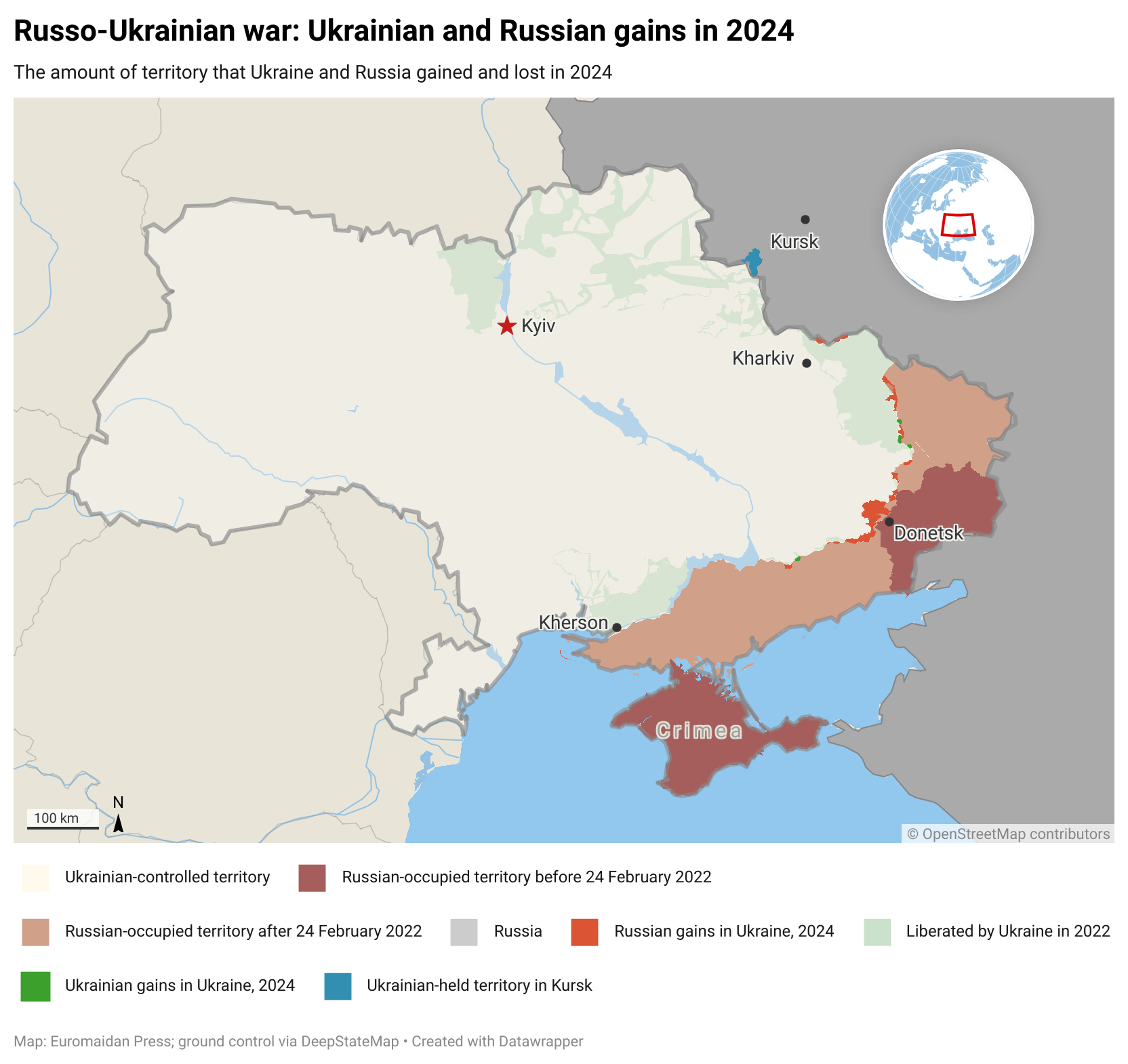
"The Russian war economy isn't sustainable long-term. For the war to end, the trend must reverse on the frontline."
This shift wouldn't necessarily trigger a complete Russian withdrawal, but could force Moscow to accept a temporary cessation of hostilities without achieving full control of occupied territories. But this raises difficult questions about the fate of Ukrainians in occupied areas – subjected to intensive Russification efforts and human rights abuses.

Yes, Ukraine can win the war – ex-minister decodes victory plan
The stakes for Europe if Ukraine falls
Nielsen's analysis of what Ukraine's defeat would mean for Europe is chilling. "Russia would establish a Belarus-type puppet government in Kyiv. They wouldn't annex all of Ukraine, but it would become a pro-Russian puppet state."
This would fundamentally alter the European security balance. "Ukraine currently has Europe's second-strongest army after Russia. These two combined against the rest of Europe would be catastrophic, with Ukraine's defense industry falling into Russian hands."
The warning to Western European powers is clear: "Western European countries shouldn't delude themselves into thinking we have strong militaries because we spent more money or have more planes – German and French armies don't match the Ukrainian one in combat effectiveness."
Nielsen expects Russia would test Western cohesion in such a scenario: "Will France actually defend Latvia when push comes to shove? I'm concerned about this scenario."
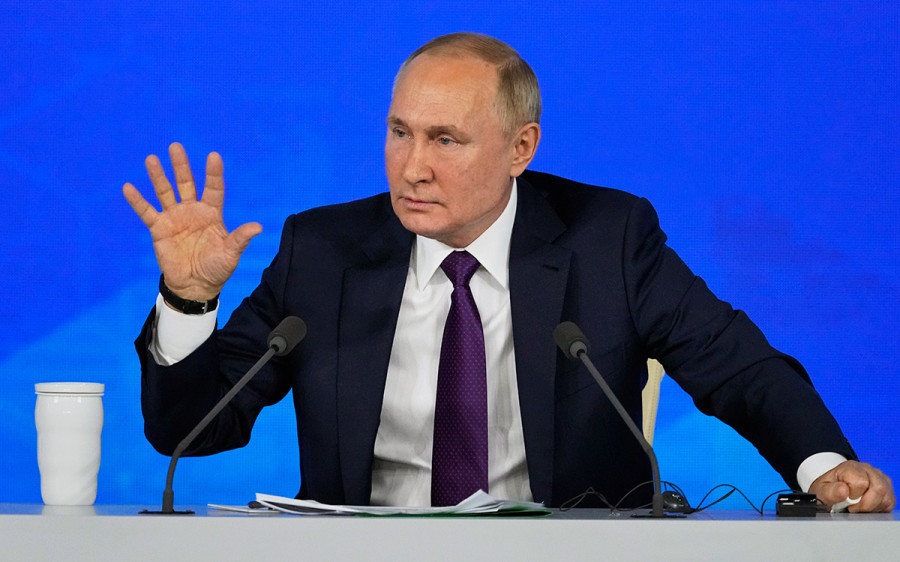
The peace trap: Five ways Putin wins if Ukraine freezes the war
A path forward for Europe and Ukraine
Nielsen's recommendations focus on a fundamental shift in perspective: "I think there has to be a transition to primarily talking about Europe as the future framework. Ukraine should get whatever it can from the United States but not rely on Americans for future security guarantees."
He advocates for reducing dependence on American technology where possible, citing Starlink as an example of a critical system with potential vulnerabilities to political shifts.
The most promising avenues for increasing European defense capabilities, in Nielsen's view, lie in Ukrainian production facilities. "The best way to boost defense production is in Ukrainian facilities – that's where there's the most potential for rapid output increases. We need more direct investment in Ukraine's defense industry."
The mindset shift required is substantial: "The United States is transitioning from being a reliable ally to just another potential market source that may or may not be willing to help or sell their stuff."
For Nielsen, the fundamental calculation remains clear: "Europe can't allow Ukraine to lose this war." The continent's security depends on it.
Anders Puck Nielsen is a Danish naval officer, military analyst at the Royal Danish Defence College, and YouTube commentator with over half a million subscribers. Known for his fact-based, pragmatic analysis, he has become one of the most respected international voices on the war in Ukraine.

